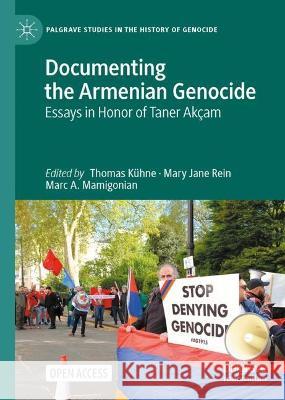Documenting the Armenian Genocide: Essays in Honor of Taner Ak?am » książka
topmenu
Documenting the Armenian Genocide: Essays in Honor of Taner Ak?am
ISBN-13: 9783031367557 / Angielski
Documenting the Armenian Genocide: Essays in Honor of Taner Ak?am
ISBN-13: 9783031367557 / Angielski
cena 160,61
(netto: 152,96 VAT: 5%)
Najniższa cena z 30 dni: 154,18
(netto: 152,96 VAT: 5%)
Najniższa cena z 30 dni: 154,18
Termin realizacji zamówienia:
ok. 22 dni roboczych
Dostawa w 2026 r.
ok. 22 dni roboczych
Dostawa w 2026 r.
Darmowa dostawa!
Kategorie BISAC:
Wydawca:
Palgrave MacMillan
Seria wydawnicza:
Język:
Angielski
ISBN-13:
9783031367557











